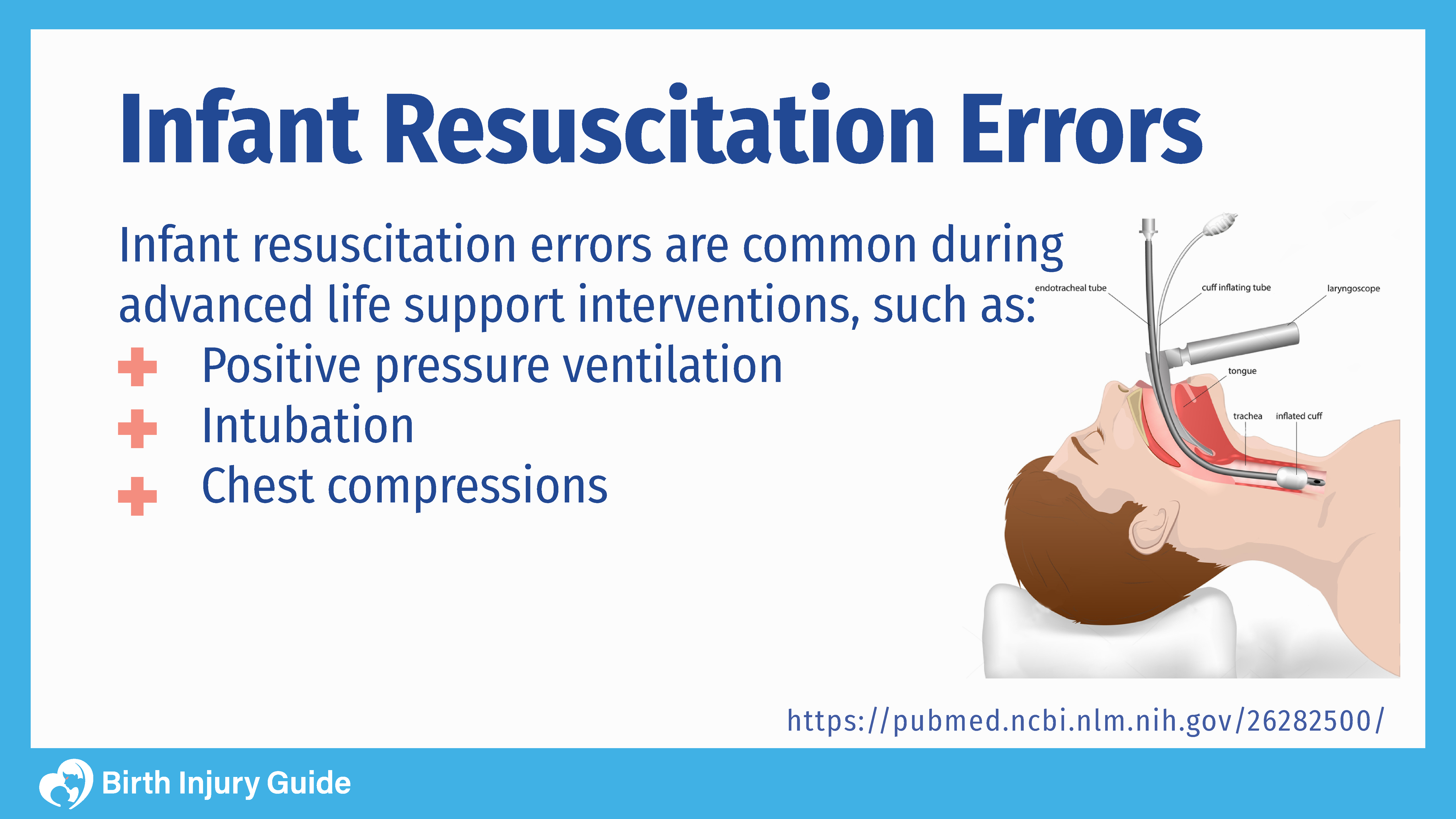
Infant Resuscitation Errors
Infant resuscitation errors are an alarming possibility in delivery rooms. In the best scenario, an infant moves from the womb and into the world with little assistance. Yet, there are instances in which babies will need special intervention and assistance in order to successfully breathe and thrive on their own after birth.
In some cases, the need for special intervention may not even be realized until the baby is born; therefore, it’s imperative that healthcare providers are not only experienced in dealing with infant medical conditions that may need emergency treatment, but also extremely attentive to any signs of fetal distress that may lead to the need for infant resuscitation.
Common Reasons for Infant Resuscitation
There are several factors that are associated with placing babies at a higher risk for the need of resuscitation. Although not all of the following reasons will result in the need for infant resuscitation, they do heighten the risk:
- The use of birth-assisting tools during delivery, such as an vacuum extraction tool or forceps
- A prolapsed umbilical cord
- Preterm labor or post-term labor
- Meconium aspiration syndrome
- Intrauterine Growth Restriction (IUGR)
- Macrosomia (large infant size)
- Nonreassuring fetal well-being
Maternal issues that heighten the risk include:
- Infections and diseases
- Maternal age of over 40 or under 16
- Placental abruption
- Placenta previa
- Prior high-risk births
- Sudden, severe bleeding during pregnancy
- Premature rupture of the membranes
- Gestational diabetes
Per Robin L Bissinger, PhD, APRN, NNP-BC, author of a study performed on neonatal resuscitation, nearly half of all newborns deaths occur within the first 24 hours of birth. In many cases, asphyxia and respiratory problems are the cause. Although early ultrasounds and other medical check-ups and tests can alert doctors to infants who are at risk, it’s still important to have qualified, experienced medical staff on-hand at every birth.
What Treatment is Available if an Infant Needs Resuscitation?
The type of resuscitation efforts will depend on the infant’s condition; however, typical types of resuscitation efforts include:
- Positive Pressure Ventilation (PPV)
- CPR and chest compression
- Intubation and oxygenation
- Airway suctioning
- Surfactant administration
- Epinephrine medication
- Defibrillation
Infant Resuscitation Errors

As mentioned earlier, it’s imperative that physicians and medical staff are experienced in dealing with any emergencies that may arise during delivery. One small mistake or negligent act can lead to life-threatening health issues for infants. If a baby is deprived of oxygen too long, permanent damage can happen within a matter of minutes including:
- Brain damage
- Cerebral palsy (CP)
- Lower IQ scores
- Autism
- Cognitive disabilities
- Physical disabilities
- ADHD or ADD
Unfortunately, there are a myriad of reasons for delayed infant resuscitation, but most boil down to lack of medical experience and negligent errors. Some of most the common reasons for failed resuscitation include:
- Failure to detect the need for resuscitation shortly after birth
- Failure to have qualified, experienced medical professional close by after a birth with heightened risk factors
- Improper infant resuscitation techniques
Sources:
- http://www.ncbi.nlm.nih.gov/pubmed/20172885
- http://pediatrics.aappublications.org/content/125/3/539.full.pdf
- http://www.utmb.edu/policies_and_procedures/Non-IHOP/Respiratory/07.03.44%20Neonatal%20Intubation.pdf
- https://www.fda.gov/medical-devices/medical-device-safety/medical-device-recalls
- http://emedicine.medscape.com/article/977002-overview



